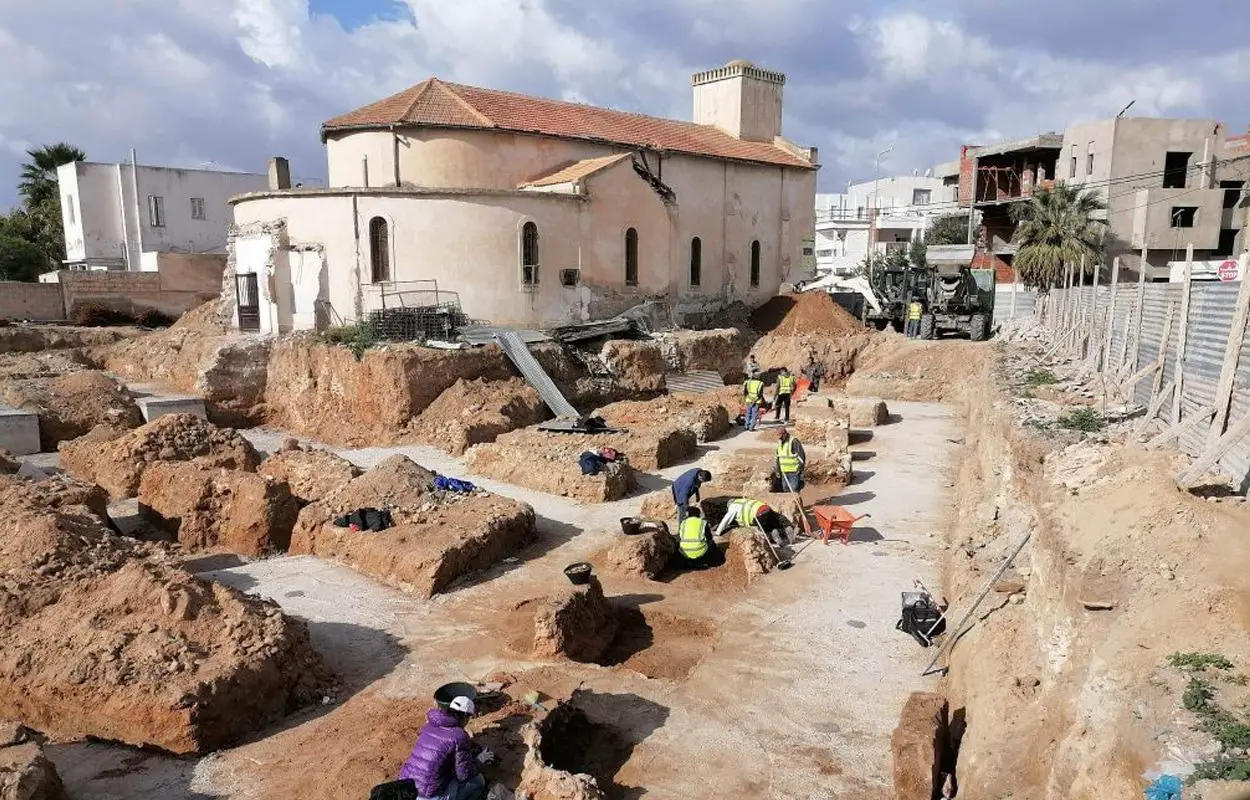Archaeologists from the National Heritage Institute (INP) have uncovered several Roman cisterns during excavations in ancient Maxula.
Maxula, also called Maxula Prates, was a Roman colonia, located in the present-day harbour city of Radès, in the Ben Arous Governorate of Tunisia.
The modern name of the town, Radès, derives from the Latin expression “Maxula per races” (Maxula by the ferries), Maxula being the original Libyco-Berber name of the village, which in antiquity was a station for boats to connect the terminus of the coastal road with Carthage by sea.
During the Roman period, the region was part of the Roman Province of Africa, Africa Proconsularis, which was established in 146 BC following the defeat of Carthage in the Third Punic War.
Under Roman rule, the province was nicknamed the “Granary of the Empire”, due to an economy based on agriculture – exporting cereals, beans, figs, and grapes from port towns such as Maxula to all corners of the Roman world.
The town was also the seat of an ancient Christian bishopric, which survives today as a titular see of the Roman Catholic Church.
During construction works adjacent to the Maxula-Radès church on 23 Av. De La République, workers uncovered evidence of Roman remains and notified authorities.
This led to a rescue excavation by the National Heritage Institute, revealing several cisterns and the remains of foundation walls. The cisterns were used as a waterproof receptacle for holding liquids, usually water, which in Roman times were a water management system in dry-land farming communities.
Header Image Credit : National Heritage Institute (INP)





